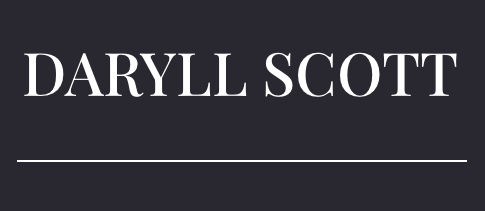Do Coaches Need a Hippocratic Oath?

Coaches: Beyond individual ethical dilemmas, what are your guiding principles?
As professional coaches, we spend much time debating ethical quandaries like the blurry boundary between coaching and therapy and broader contextual or systemic factors beyond the one-to-one coaching relationship.
Whilst wrestling with ethical questions one-by-one provides valuable experience and gives you plenty of fodder for reflection and supervision conversations, do they lead to useful decision-making principles, more congruent values or a clearer moral compass?
We can debate ethics all day long, but what do we learn about the principles that guide us? I rarely fall into ethical quandaries regarding coaching because I have a very clear set of deal breakers shaped by 20 years of experience.
I would like to share three of them with you, but I would also like to be clear that I am not suggesting you adopt them. These principles work for me, but I regularly turn away business and say no to people who need help if the conditions are not right. You may have different ethics and values, these are merely offered to enrich the debate:
Remember who your client really is, and never coach by proxy
I will never take on a coaching client unless they contract with me directly and personally.
Tripartite meetings are great for establishing contexts to work on, but they should never serve as a brief for coaching. From experience, directive opinion from a manager or leader can be to satisfy their own self-serving intentions, to do their job of leading or managing for them, or to pass their own development needs on to other people. Opinions and feedback are helpful to fuel the process but not the outcome.
Coaching is effective because you utilise the values, motives, abilities, experience and resources of the individual. If you corrupt that by steering the process to satisfy the organisation's needs, you are consulting and no longer coaching.
I work solely for my individual client, everybody else’s opinion is just helpful feedback.
Remember who owns the process, you can't lead a horse to water...
From training with Marshall Goldsmith, I learnt the importance of contracting the mindset you expect from your client.
Coaching is described as ‘partnering’, and for that to be true, just as you, the coach, are expected to deliver on particular mindsets and approaches, so should your client be. For the coaching process to work, the ‘coachee’ must not defend themselves against it.
Ultimately, all change is generated solely within the client. We are just facilitators who co-create conditions and provide stimulus.
Goldsmith suggests that clients must engage in leadership coaching with curiosity, humility and discipline. If the client consistently fails to approach the process with these essential mindsets, you should terminate it because the client is actively sabotaging.
This may seem a little harsh and not in the spirit of partnering and nurturing, but if you allow your client to defend their limitations successfully, the prize is that they get to keep them!
As a coach, I am happy to be held accountable for results, I’m even prepared to charge based on ROI under certain conditions, but I demand that my client hold up their end of the partnership without fail.
I partner with my client: I bring a coach's mindset, and they bring a growth mindset. I terminate ineffectual contracts and refuse to become a paid-for friend.
Always leave clients in a better state of mind than you found them
Professional coaching is described as being in a 3rd wave. Coaches are encouraged to work with the whole person, and techniques from therapeutic interventions like CBT or ACT are translated to become coaching models, but I worry that there is inadequate focus on the ability to manage and influence the emotional state of the client helpfully.
I came into coaching as a Practitioner of Neuro-Linguistic Programming (NLP) more than two decades ago, and since then have continually learned more approaches, from psychometrics and positive psychology models to more hypnotic and physiological interventions. Despite having many strings to my bow, I’m still fundamentally an NLP change agent, having been mentored by Dr. John Grinder (co-creator of NLP) between 2008 and 2012.
Many people have a negative perception of NLP, partially because of misunderstanding and partially because of the unregulated training programmes of varying quality that fuel the ridiculous inconsistency of understanding and ability amongst NLP practitioners, ranging from absolute magicians to naive novices with absolutely no idea what they are doing.
However, one thing that everyone does agree on is the huge influence that NLP has had on coaching to date. NLP initially popularised many of the techniques covered in coaching programmes. The more professionalised and academic the field becomes, the more it is turning away from the requisite clarity of process and interpersonal skills of NLP, and in doing so, something very important is getting lost. At the level of mastery, NLP is a non-directive but profoundly influential interpersonal ability.
I believe coaches should either develop some skill in interventions to manage and influence their client’s emotional state, or stay away from cognitive behavioural and other approaches that ‘open a can of worms’ we are not equipped to deal with. My personal standards and values lead me to the passionate assertion that stirring up a painful or traumatic past experience and then saying, “Maybe you should reflect on that.” Or “Perhaps you need a therapist.” Is frankly not good enough!
I don’t go down an avenue of enquiry if I do not have time to offer an effective intervention, and I take time to return my client to a balanced, settled, clear-minded state. This should be a duty of care for all coaches who dive deeply into their client’s world.
I always leave my client in a better state of mind than I found them.
If you are a coach and interested in enhancing your skill in delivering in-the-moment interventions, check out this 5-day programme:
https://www.daryllscott.com/nlp-for-professional-coaches










